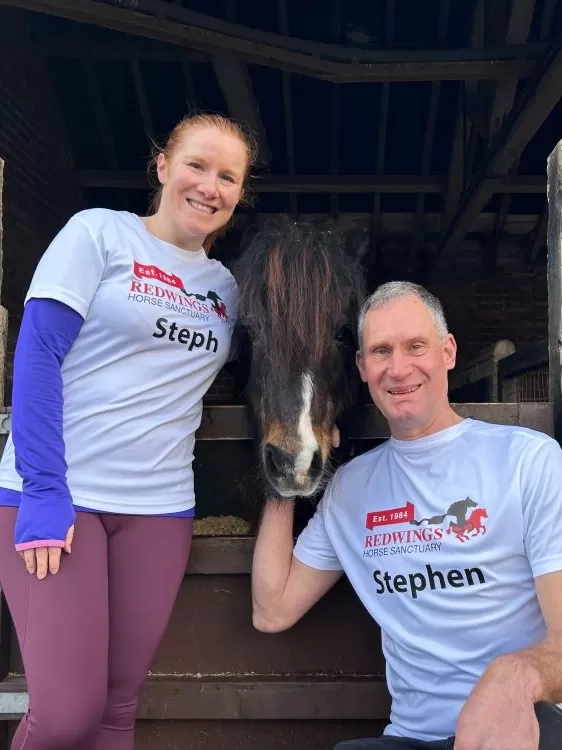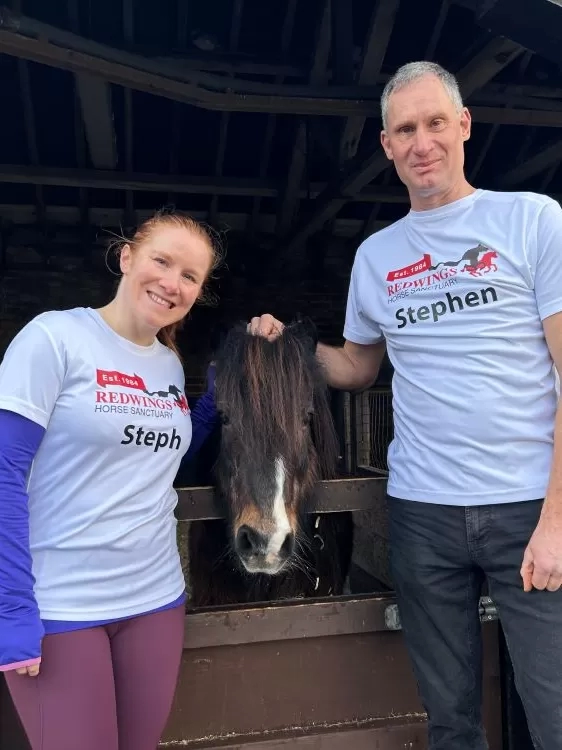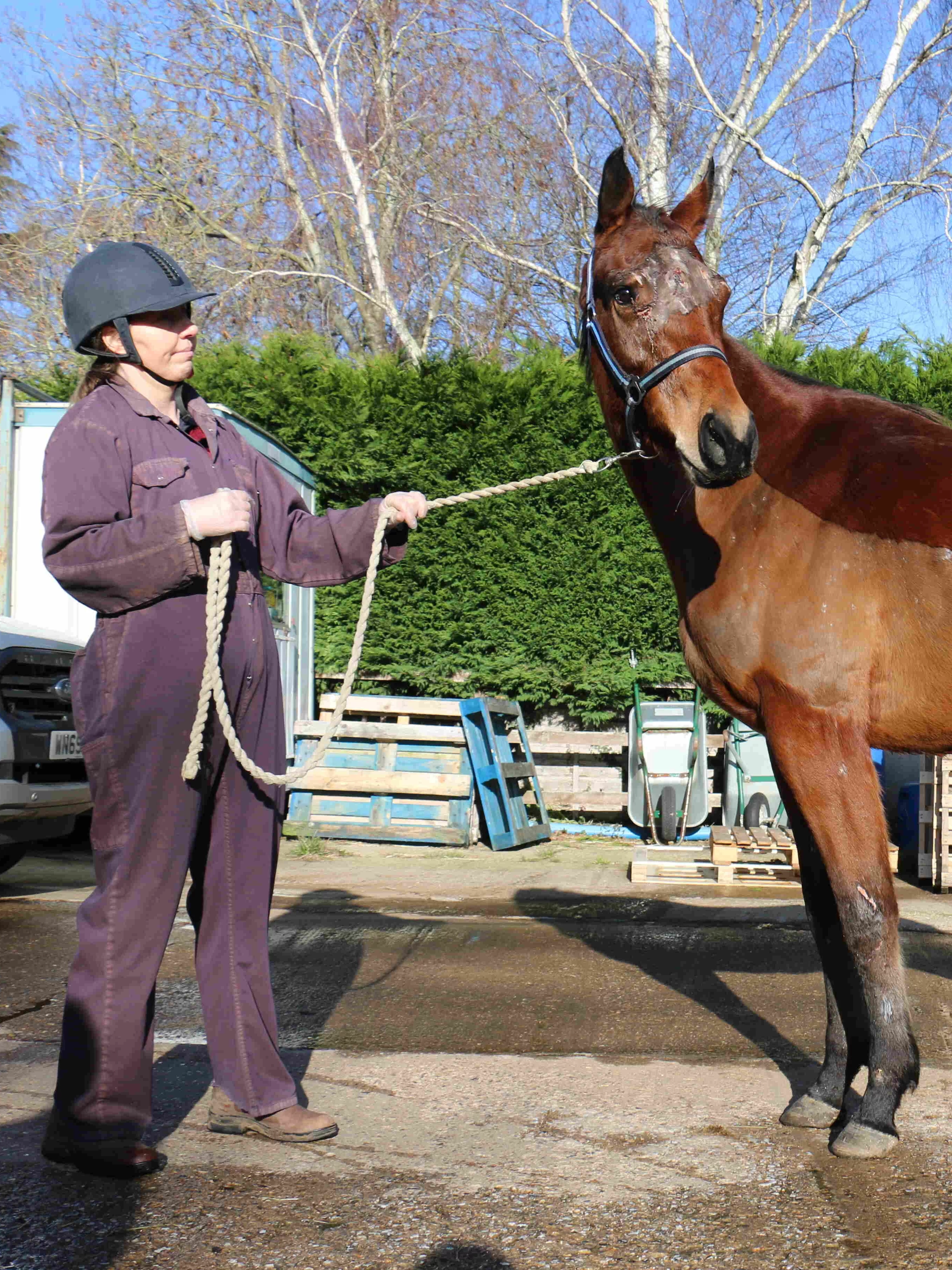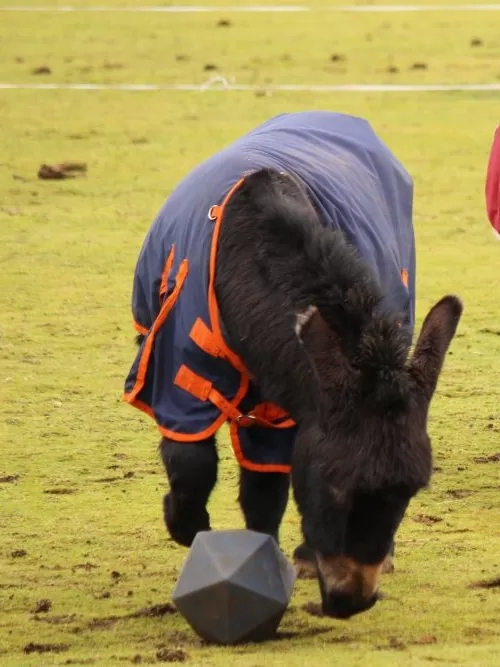Concerned about a horse? Call 01508 481008 or 01508 505246.
Concerned about a horse? Call 01508 481008 or 01508 505246.
26 January 2021

One of the reasons we have high numbers of overweight horses in the UK is the difficulty owners can have recognising that their horse is too fat.
In one online survey only 11% of more than 500 horse owner participants correctly identified overweight horses.
Being overweight carries multiple health risks for any equine, yet a study in 2018 found that almost half of all UK horses were overweight, and up to 70% of ponies would be classed as obese.
This prevalence of overweight horses is part of the problem as obesity becomes normalised and can easily skew our idea of what a healthy body should look like. So how can we tackle this stubborn welfare issue?
Over the years Redwings has developed a number of practical resources, full of information and ideas to help owners assess and address weight issues in their horses. They are all free and easy to browse and download:
Body condition score chart for horses (PDF 795 KB)
Body condition score chart for donkeys (PDF 694 KB)
Lightening the load (part of our Field Notes series) (PDF 973 KB)
(Please remember that you should always contact your vet or nutritionist for specific advice relating to the health and welfare of your own horse. Weight loss needs to be achieved through a carefully planned, long-term project to avoid compromising a horse’s physical and mental health.)
Why do I need to manage my horse’s weight?
Fat is not just about increased weight, it is an active substance in the body. Some fat is essential to life, but an unhealthy excess of fat increases inflammation and interferes with the endocrine system (involved with metabolism, growth, tissue function, reproduction, sleep and mood - among other things).
This means that overweight horses are at increased risk of many health problems. The most common include laminitis, degenerative joint disease (arthritis), lipomas and equine metabolic syndrome (a disease with some parallels to diabetes in humans). Being overweight can also negatively affect a horse’s immune system, respiratory function and temperature regulation.
In addition, carrying too much fat impacts on working horses’ fitness and performance levels, and has been linked to increased risk of behavioural issues.
With increasingly mild and wet winters affecting natural, seasonal weight fluctuations, more horses and ponies may sustain or even gain weight over winter months. This means many are already overweight when spring grass emerges, putting them at much higher risk of laminitis and perpetuating the likelihood of further weight gain.
Does Redwings use weight management techniques?
Absolutely! Redwings cares for many horses that are much better at putting on weight than losing it – a situation a lot of owners will recognise! In addition, most of our rescued residents are not in work and enjoy permanent turnout, making it extra easy for them to pile on the pounds. It is important we make sure our horse care teams can:
Many people are so used to seeing overweight cobs that they think this is normal for this type of horse. In fact, young cob Violet here is an ideal condition score of three out of five.

In 2020, Redwings and veterinary researchers at the University of Edinburgh published a study in leading journal, The Veterinary Record, which detailed the results of a trial undertaken at the Sanctuary looking at the impact of replacing half of a pony's winter hay allowance with straw. It is hoped the study could help owners manage their horses' weight in winter and reduce their risk of laminitis.
Click here to find out more and read the full report.
If you would like to be notified when Redwings produces new horse care resources, simply sign up to our mailing list by clicking here.
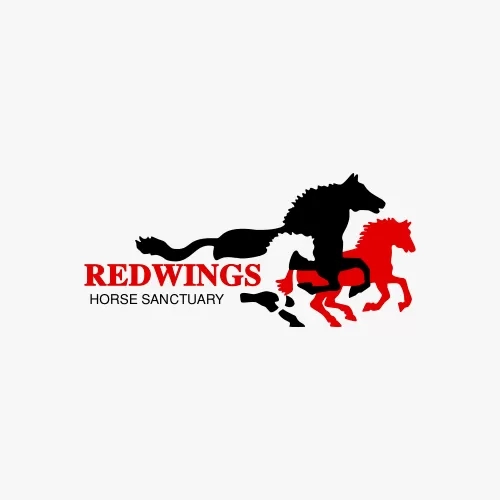
Redwings Press Office
Find out more about Redwings Press Office
